General election results: How have Reform, Lib Dems, Greens and other smaller parties done?
The historic landslide for Sir Keir Starmer’s Labour Party may be the headline of this general election but the results also highlight a dramatic shift in the UK’s wider political landscape.
While 2019’s general election was largely a story of two parties, Thursday’s national ballot led to historic gains for the Lib Dems, the Greens and Nigel Farage’s Reform UK, with victories by pro-Gaza independent candidates, among them ex-Labour leader Jeremy Corbyn – dealing blows to some of Westminster’s most prominent MPs.
Meanwhile, the SNP’s longstanding hegemony in Scotland collapsed, and with it any remaining prospect of independence in the near future, as Scottish Labour’s fortunes finally turned after a long period in the political wilderness.
That red surge north of the border helped in part to prop up Labour’s falling vote share elsewhere, as anger over Sir Keir’s stance on the war in Gaza, dissatisfaction over immigration and anti-Tory tactical voting led to four parties picking up double-digit shares of the overall vote.
Here The Independent takes a look at how each of the smaller parties has fared:
Lib Dems
Following a successful - if often bombastic - campaign, Sir Ed Davey’s party picked up 71 seats to return as the third-largest party in Westminster.
It is higher than any number in the party’s modern history, surpassing the 62 seats secured in 2005. Casting back further to its roots as the Liberal party, Sir Ed celebrated Thursday night’s exit poll, saying his party was on course for its best results in a century.
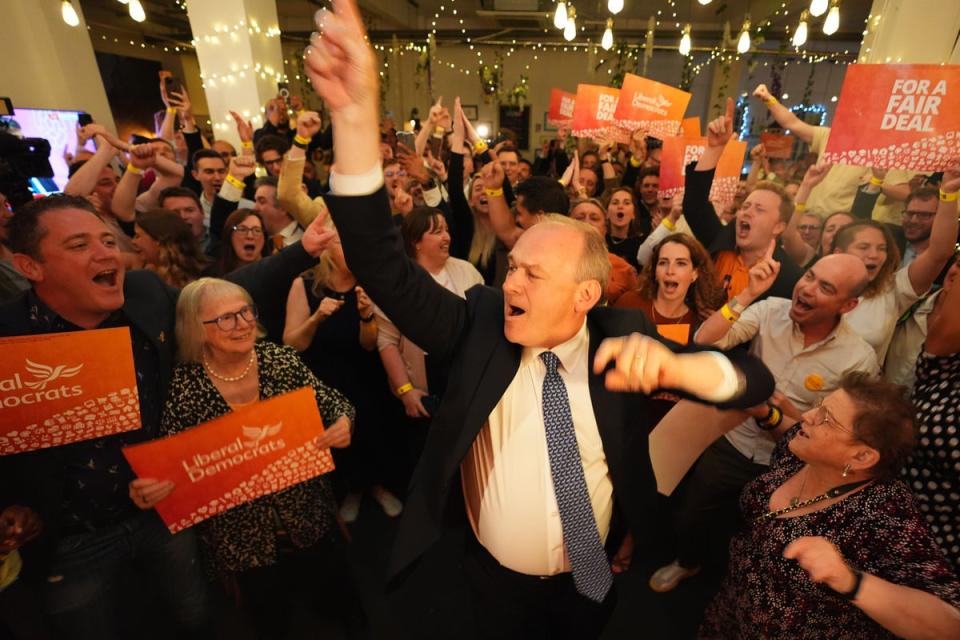
The party secured a massive notional swing of 31 per cent in Chichester to unseat education secretary Gillian Keegan and deny the Tories a foothold in the West Sussex city for the first time in a century, while narrowly missing out on making history by ousting chancellor Jeremy Hunt by a margin of 900 votes.
The party also won in the seats of three former Tory prime ministers: David Cameron’s former constituency of Witney, Maidenhead which was held by Theresa May, and Boris Johnson’s former seat of Henley.
Reform UK
Set on a warpath by Nigel Farage to hammer the Tory vote share, Reform UK surpassed many pollsters’ predictions to seize five seats – and coming second in many more.
Tory defector Lee Anderson was the first to retain his Ashfield seat, before Mr Farage finally entered parliament on his eighth attempt, via Clacton. He was followed by ousted party leader Richard Tice in Boston and Skegness, and former Brexit Party MEP Richard Lowe in Great Yarmouth.
After a recount in the Basildon South and East Thurrock constituency, James McMurdock won the seat with a majority of just 98 votes.
A triumphant Mr Farage boasted that “this is the beginning of the end of the Conservative Party”, and claimed his anti-immigration party was “coming for Labour” next.
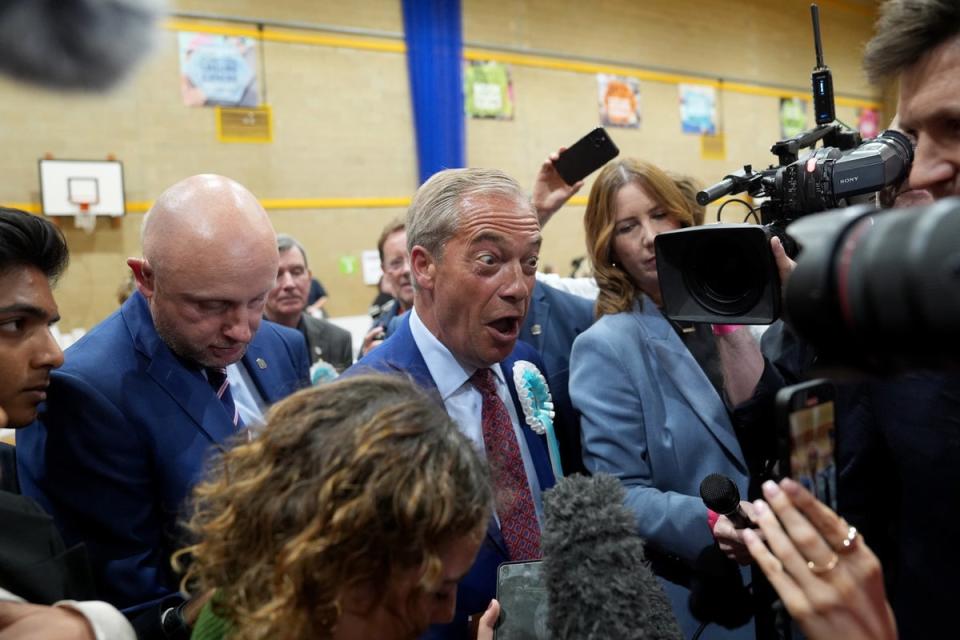
Green Party
The Green Party enjoyed its most successful election in history, winning a record four seats with close to two million votes nationally.
With former co-leader Sian Berry holding Brighton Pavilion, her successors Carla Denyer and Adrian Ramsay also secured seats, respectively defeating Labour frontbencher Thangam Debbonaire in Bristol Central and seizing 41 per cent of the vote in Waveney Valley.
Green candidate Ellie Chowns also delivered what the party labelled “one of the biggest electoral upsets in British political history” as she defeated Tory Bill Wiggin in North Herefordshire, where he won 62 per cent of the vote just five years earlier.
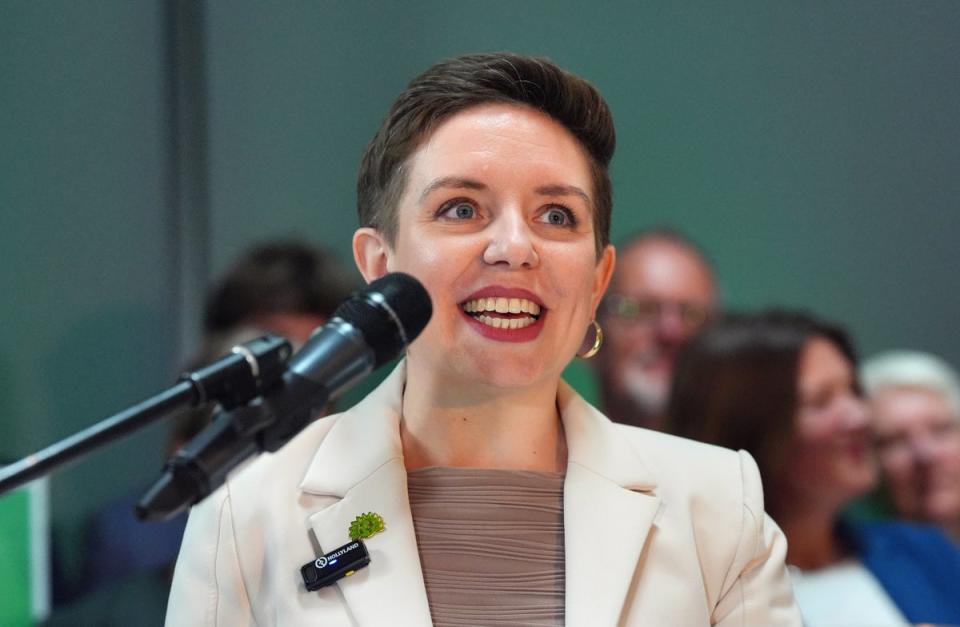
SNP
Hampered by controversy and two leadership changes, the SNP’s fortunes were less rosy, with John Swinney’s party reduced from 48 MPs to just nine.
Reflecting upon what he conceded was a “very poor” performance, Mr Swinney – who stepped in as first minister following the resignations of Humza Yousaf and Nicola Sturgeon – pledged a period of “soul-searching” for the party.
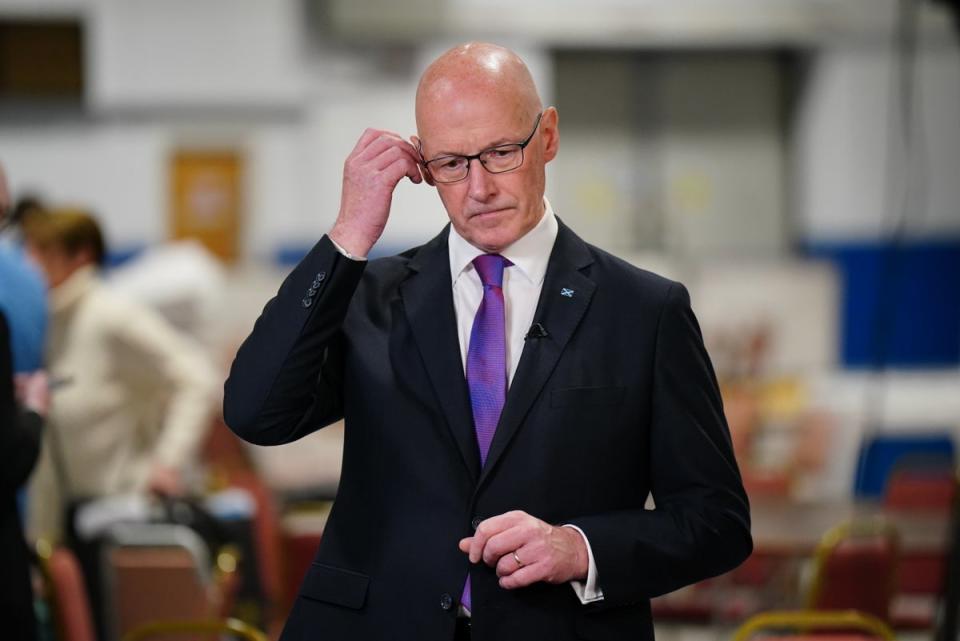
Sinn Féin
Matching its 2019 result of seven seats, Sinn Féin became Northern Ireland’s largest Westminster party for the first time on Friday after the Democratic Unionist Party (DUP) suffered a challenging night, losing three seats.
The greatest upset came in North Antrim, where Ian Paisley was defeated by Traditional Unionist Voice (TUV) leader Jim Allister, who won by 450 votes. The DUP also lost former leader Sir Jeffrey Donaldson’s Lagan Valley seat to the Alliance Party’s Sorcha Eastwood.
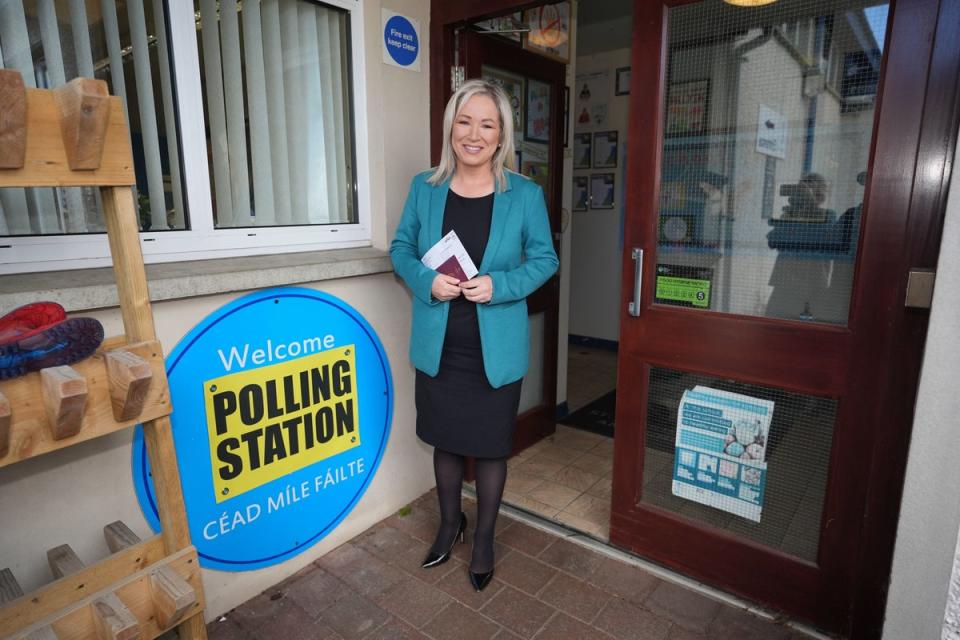
Independents
In a blow to his successor, ousted former leader Jeremy Corbyn held the Islington North seat he has represented since 1983, beating his Labour opponent by more than 7,000 votes.
And in another tussle initiated by Sir Keir’s uncompromising stewardship of the Labour Party, recently deselected Labour candidate Faiza Shaheen’s battle with replacement Shama Tatler handed former Tory leader Iain Duncan Smith a victory in Chingford and Woodford Green.
Reflecting anger in the Muslim community over Sir Keir’s stance over the war in Gaza, a number of other Independent candidates caused a headache for prominent Labour figures, claiming multiple scalps.
Notably, Labour frontbencher Jonathan Ashworth suffered a surprise defeat in Leicester South to pro-Palestine Independent Shockat Adam. In Blackburn, a seat held by Labour since it was formed in 1955, Independent Adnan Hussain overturned Labour’s 18,000-plus majority in a historic victory, telling voters: “This is for Gaza.”
Jess Phillips narrowly held on in Birmingham Yardley, beating Workers Party candidate Jody McIntyre by fewer than 700 votes, as shadow health secretary Wes Streeting was just 500 votes away from losing his seat to British Palestinian Independent Leanne Mohamad.
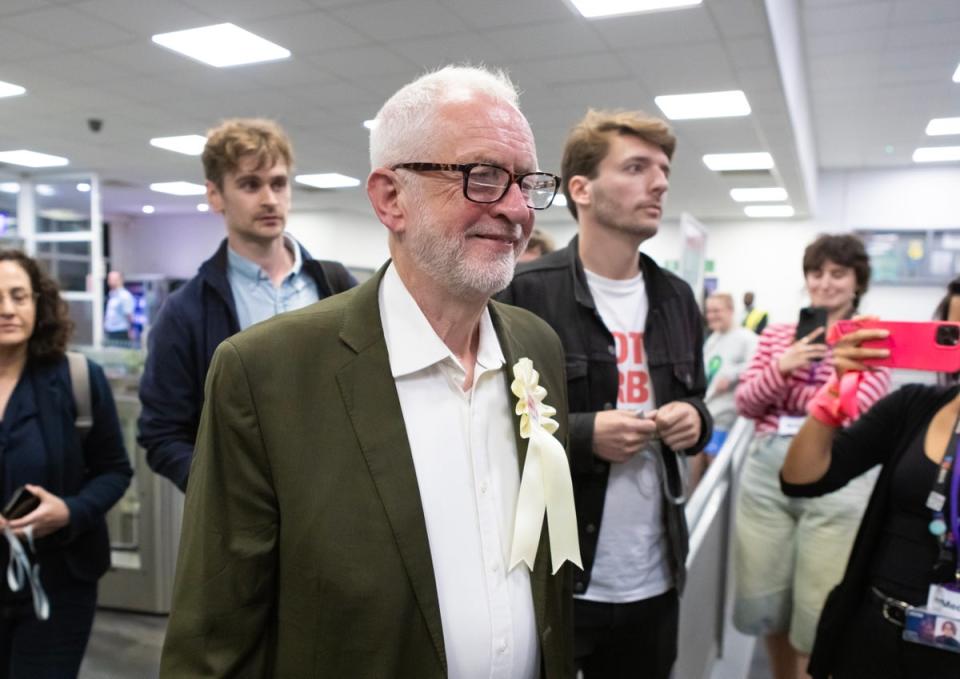
Workers Party of Britain
Despite much aplomb, George Galloway’s party failed to secure a single seat in the general election – with the seven-time MP losing the Rochdale constituency he had held briefly since February’s by-election.
Losing to Labour’s Paul Waugh, a former political journalist, Mr Galloway – who stood on a platform dominated by his longstanding support for Gaza – was not at the count in Rochdale Leisure Centre when his defeat was announced.
Others
Plaid Cymru won four seats in Wales, where the Conservatives were wiped out; and the Social Democratic and Labour Party retained its two seats in Northern Ireland.

 Yahoo News
Yahoo News 
